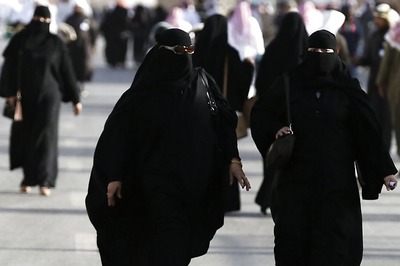
views
Demand for flights and jet fuel could take years to recover from the coronavirus crisis as airlines struggle to survive their worst downturn, haunted by possible changes in the habits of tourists and business travellers. Among the various fuels, the jet has been hit hardest and industry leaders warn it will take years for all-important airline-industry demand to return to 2019 levels.
"Jet fuel consumption will be impacted for a longer time and maybe not recover fully even next year, as travellers remain concerned about long-haul vacations, and businesses get used to online meetings," said Per Magnus Nysveen, head of analysis at Rystad Energy, a consultancy.
Exemptions for agriculture and freight from widespread lockdowns have offered some support to diesel and fuel oil, but jet demand remains weak as a significant slice of the world's 23,000-strong commercial plane fleet is in storage.
Jet fuel prices in Singapore have slumped 61% over the last two months. Refining margins or cracks for jet fuel in Singapore are currently lingering at narrow premiums over Dubai crude after hitting minus $3.35 per barrel earlier this month.
The International Air Transport Association (IATA), representing airlines, has already warned of a slower recovery than in past crises. On Tuesday, it raised its forecast for 2020 revenue losses by 25% to $314 billion.
Director General Alexandre de Juniac told Reuters he sees a staggered lifting of restrictions starting with domestic, then regional and finally intercontinental routes being reopened where fuel consumption plays a critical role. IATA has warned any recovery would not start before the last quarter of the year.
Planemakers Airbus and Boeing have also warned of an extended crisis, with few analysts predicting a return to previous conditions until 2023 or 2024.
According to Robert Stallard of Vertical Research Partners, it could be almost five years before the active aircraft fleet returns to where it was at the end of 2019.
But the head of Ryanair, Europe's largest low-cost airline, brushed off forecasts of a sluggish recovery, telling Reuters he saw a swift traffic rebound fuelled by "massive price-dumping" in a race to win back passengers.
Just as important for fuel demand, many airlines expect to use the crisis to speed up retirements of their oldest and thirstiest jets. That said, low oil prices mean the incentive to invest in costly new equipment is tempered for now.
Jet fuel demand averages about 8 million barrels per day (BPD). The International Energy Agency said on Wednesday it expected demand for jet fuel and kerosene to fall by 2.1 million BPD on average in 2020, or 26%.
"The full effect of these measures is likely to be seen in April when demand will fall by 4.6 million BPD (-59%), a historic record," it said in its monthly report.
Rystad expected jet fuel demand to fall at least 1.9 million BPD in 2020, and JBC Energy consultancy estimated jet fuel demand over the next few months would fall to below 2 million BPD and to 5.2 million BPD on average in 2020.
"We see some normalisation only in 2021," said JBC Energy Asia's managing director Richard Gorry, who sees a drop of 70% in jet fuel demand in the second quarter of 2020.
Some analysts believe growth in online working during mandatory lockdowns might not disappear entirely once the coronavirus goes away. For finance directors, that offers a tempting chance to reduce office, event and travel costs.
Homayoun Falakshahi, a senior analyst at Kpler, said leisure trips could recover in the next couple of years, but business travel may take longer.
"Technology improvement is a key reason why we don't think business travel will resume sharply any time soon," he said.
Others say pressure to do business face-to-face will resume when economies grow. Air travel and GDP have been closely tied.
Airport health checks, while helping to restore confidence through visible safety measures, could also discourage people from travelling by air. "Rather like what happened in the United States after 9/11, we could see the imposition of health checks, more paperwork, and basically more hassle and time getting through airports," said Stallard.
Changing lifestyles could also play a role. Under lockdowns people are adapting to a more local existence and consuming less globally produced fresh food, which may have a lasting impact on fuel demand, analysts at Goldman Sachs said. "Commuters and airlines account for 16 million BPD of global oil demand and may never return to their prior levels."
But IATA's de Juniac said economic integration, which has supported consistent growth in air transport.
"Yes there will be a slowdown - there is already - but after a while, people will recognise all the benefits coming from globalisation," he said in a video interview.
Also Watch:


















Comments
0 comment